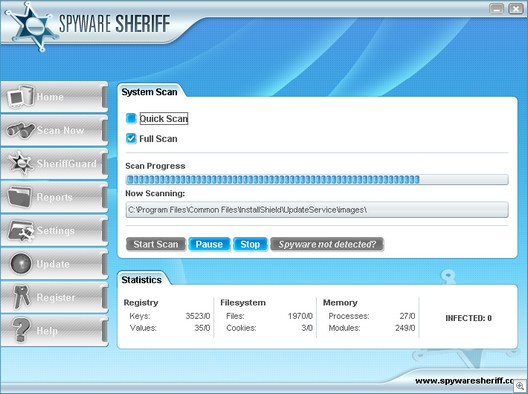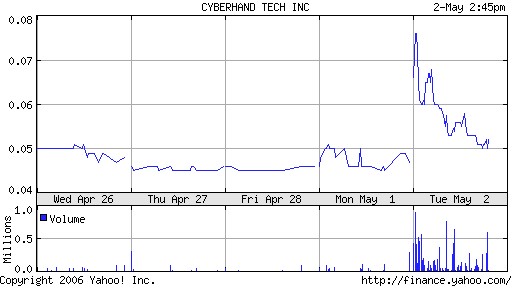There has been a lot of talk lately about the concept of network neutrality, and there are bills in Congress to force the issue, but most Internet users don’t even know what it means, much less whether or not the government should mandate it. It’s an issue, though, that can affect all of us who use the ‘Net, in several different ways – especially when the government starts getting into the act.
Network neutrality, in its original meaning, refers to non-discrimination. In other words, a network such as the one run by your ISP treats all types of traffic the same way. One type (whether a specific protocol such as VoIP or content from a specific provider such as Microsoft or email from specific addresses) doesn’t get priority over any other type.
It doesn’t help that different sources are using the term to refer to slightly different things. Some articles seem to equate it with monopoly/anti-competitive issues: that is, consumer and content provider choice as to Internet provider. This certainly is a problem for many Internet users outside the major urban areas. In many locations, consumers may have only one realistic option if they want broadband Internet service.
Those whose cable companies don’t offer Internet service and who are too far away from the phone company central office to get DSL (or whose COs have been upgraded to the equipment required to support DSL) have one choice left: satellite. Although it costs more than cable/DSL and is slower, along with suffering from latency problems that make it impractical for certain applications such as real-time gaming, it can be installed most anywhere that you have a view of the southern sky.
As you get closer to urban hubs, you often have additional options, mostly commonly cable Internet and/or DSL. Some of us are really lucky and live in areas where Verizon has laid fiber and offers their ultra high speed (up to 30 Mbps) FiOS service, and others live in places served by wireless Internet providers or in one of the few places where you can get Internet over power lines. So it’s possible (but rare) to have five or six broadband options. Most have from one to three and many rural users are stuck with zero, having to rely on slow dialup or expensive T-1.
So how is this matter of choice related to network neutrality? The worry is that ISPs such as your cable company or phone company and services such as AOL can use technology called Quality of Service (QoS) to give some of the data that passes over their networks priority. Corporate networks have been doing this for years. Packets generated by mission-critical applications can be given preference over less important traffic.
This could be a money-maker for service providers because they can strike deals with content providers to ensure that those content providers’ data gets delivered more quickly than that of other content providers who don’t pay the fees for this priority attention. For example, Verizon could contract with Google to give their search services priority over Yahoo’s or MSN’s search. This would make Google more attractive than its competitors to those who use Verizon as their ISP, because it would be faster. In addition, the money that Verizon got from Google could be used to keep their prices for Internet service lower than those of an ISP that doesn’t engage in such contracts.
Does such a contract amount to discrimination? Sure it does. The question is whether the government has the right (or duty) to prohibit a private sector company from discriminating. We have laws that prohibit private employers from discriminating in hiring decisions, if the discrimination is based on race, gender, age, disability and so forth. On the other hand, the mandate for “employment neutrality” is not absolute. There is no prohibition on an employer discriminating against people who don’t have college degrees, or people who have no job experience.
In fact, the word “discrimination” has come to have a negative connotation because of its association with racial prejudice, but the original meaning of the word “discriminate” is “to exercise judgment or selection based on differences.” A world where no one discriminated would be a chaotic one; every time we make a choice we practice discrimination.
Hiring aside, companies are allowed to discriminate in making most business decisions. The practice of making discriminatory deals with other companies is commonplace in the business world. Should McDonald’s be allowed to make a deal with Coca Cola to sell Cokes instead of Pepsis in their restaurants? Or should the government require that they provide “equal access” to all brands of cola?
On the other hand, traditionally public services have been held to different standards regarding discrimination than is true for a business like McDonald’s. While ISPs are private businesses, the Internet is considered a public network and is often likened to the public highways. Those in favor of laws mandating network neutrality argue that allowing ISPs to create a deal with a content provider giving its content bandwidth priority is like the highway department striking a deal with a car manufacturer giving its brand of vehicles a special fast lane on the road.
Critics of these laws counter that the highways are funded by the taxpayers, not by a company like AT&T, Verizon or Comcast, and these companies will not continue to put their money into making the networks better if they aren’t allowed to maximize their revenue streams. The response to that is that much of the original Internet infrastructure was built with tax dollars before commercial concerns took it over. And the debate goes back and forth, with both sides making a lot of valid, logical points.
What does it mean to you as an ISP customer and user of the Internet? If ISPs are allowed to make discriminatory deals, at the extreme they could actually block the web sites that compete with their partners. That is, in our example of Verizon making a deal with Google, they could prevent Verizon customers from accessing the Yahoo or MSN search sites. This is not what any ISP is proposing to do at this time, but it’s certainly technologically possible.
Discrimination also means your ISP can not just certain web sites, but types of Internet packets. If your Internet provider is also your phone company, they could block you from using Voice over IP (VoIP), which allows you to make free long distance calls over the Internet so you’d have to use your regular phone service and pay long distance charges. Likewise, if your ISP is a cable company, they could block you from watching TV over IP, forcing you to get your TV content via their cable TV services instead.
In 2004, the Chairman of the FCC devised the “principles of network freedom” that stated consumers are entitled to access lawful Internet content of their choice, to run applications and services of their choice, to connect any legal devices of their choice so long as they don’t harm the network and to have a choice (competition) in service and content providers. In 2005 the FCC fined a carrier that blocked VoIP.
On the other hand, opponents of net neutrality laws warn that prohibiting ISPs from making deals will lead to higher prices for Internet service, since they’ll recover the lost revenues by raising consumer prices. They also point out that if you don’t like the priorities assigned by your ISP, you can drop them and use a different ISP. Back in dialup days when there were dozens of ISPs competing in many markets, that was a lot easier to do. Now, as we mentioned earlier, there may be only one or two ISP choices in your area if you want/need a high speed connection.
You can find numerous commentaries on the Web that expand on both sides of the issue. Let us know what you think. Should ISPs be forced to treat all traffic equally, on a “first come, first served” basis? Or should they be allowed to give priority to some types of network traffic, or even block some (for instance, if file-sharing programs are clogging up the network and slowing it down for everyone, should they be able to block such programs)? Would you be willing to pay more in ISP fees to keep the network neutral? Or should the government stay out of it and let the free market sort things out?
Deb Shinder








